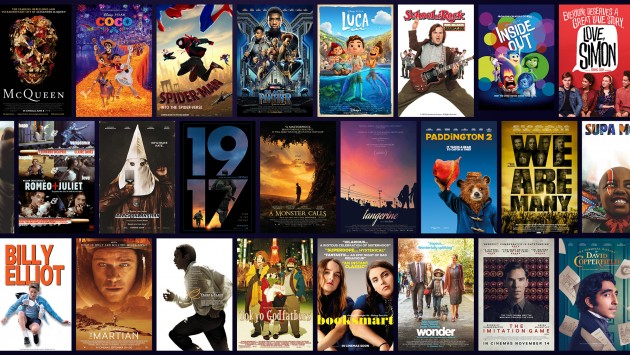The intersection of film and the Bahá’í teachings presents a compelling canvas upon which the tenets of social awareness and change can be explored. As a dynamic medium, film transcends mere entertainment, embodying a powerful vehicle for the propagation of ideas, the reflection of societal issues, and the instigation of transformative dialogue. Within this context, the Bahá’í Faith provides a rich philosophical backdrop, emphasizing the importance of unity, justice, and consultation in addressing the myriad challenges that confront contemporary society.
To begin, it is imperative to acknowledge the intrinsic ability of film to communicate complex narratives. Creators harness visual storytelling to captivate audiences, often revealing insights into the human condition that may remain obscured in everyday discourse. This capacity for empathy and understanding resonates deeply with the core Bahá’í principle of oneness of humanity, which posits that all individuals are interconnected and share a collective destiny. Films that delve into social injustices—be it through narratives central to civil rights, environmental degradation, or the plight of marginalized communities—serve not only to educate but also to foster a sense of solidarity among diverse populations.
Moreover, the age-old aphorism that art imitates life holds particular weight in the realm of cinema. Filmmakers often reflect the zeitgeist of their times, unearthing societal undercurrents that necessitate discourse. This aligns with Bahá’í teachings advocating for the acknowledgment of societal dysfunctions as a precursor to meaningful reform. Through the lens of Bahá’í philosophy, films can act as catalysts for public awareness, illuminating the disparities and inequities that permeate human existence.
Furthermore, the artistic merit of film must not be underestimated. The visual arts have long been recognized for their ability to convey profound truths, engaging the audience not just intellectually but also emotionally. The Bahá’í teachings underscore the significance of art as a form of expression that can elevate the human spirit. When filmmakers draw upon these teachings, they often create works that transcend superficial entertainment, initiating conversations that are both profound and necessary. The emotional engagement of audiences can galvanize them into action, cultivating a generation attuned to the urgent call for social justice.
As film fosters social awareness, it also serves as a crucible for dialogue—a platform for communal discourse where varying perspectives can converge. The Bahá’í principle of consultation emphasizes collaboration and inclusive dialogue as essential components of decision-making. Films can stimulate such dialogues by depicting multifaceted viewpoints surrounding contentious issues. Documentaries, for instance, often present unvarnished truths, prompting viewers to engage in reflective dialogue about the implications of those truths. This dialogical process can lead to enhanced understanding and collective action, resonating with the Bahá’í commitment to cooperative efforts towards societal betterment.
Additionally, the narrative structure inherent in films often mirrors the complexities of social change. Protagonists are frequently depicted as navigating obstacles, battling against prevailing injustices, and ultimately striving for a greater good. Such arcs can serve as a microcosm of broader societal struggles, reflecting the transformative journey that individuals and communities must undertake. The Bahá’í teachings advocate for the continuous striving toward justice and equity, positioning personal and collective growth as foundational to progress. This narrative alignment can inspire audiences to view their own roles in the larger narrative of social change.
Moreover, certain films have the capacity to challenge prevailing paradigms and shake the foundations of established norms. In this regard, they can reveal the subtle mechanisms of systemic injustice, fostering a critical consciousness among viewers. This phenomenon can be examined through the Bahá’í lens, which emphasizes the capability of human beings to effect change through conscientious action and moral clarity. By presenting stories that critique societal structures, filmmakers can stimulate a re-evaluation of entrenched beliefs and inspire a reawakening to the responsibilities of citizenship. Through this invigorating process, the potential for social transformation becomes tangible and actionable.
Equally important is the role of filmmakers as stewards of a cultural narrative. By selecting themes that align with Bahá’í teachings—such as the importance of equity, global harmony, and justice—they assume the responsibility of shaping public consciousness. Film thus becomes not only a form of entertainment but a pedagogical tool that can instigate shifts in cultural perceptions and behaviors. This aligns closely with the Bahá’í view that education—both formal and informal—serves as a powerful mechanism for social progress. The narratives woven into films can teach values and encourage actions consistent with the Advancing of civilization.
Ultimately, the confluence of film and Bahá’í teachings articulates a profound narrative: that the power of storytelling lies not merely in its ability to entertain but in its potential to illuminate, mobilize, and transform. As film continues to evolve in a technologically driven society, it retains its capacity to transcend geographical and cultural barriers, fostering a collective conscience aimed at unity and social justice. Directors and storytellers, imbued with the ethos of Bahá’í principles, have the opportunity to create a resonant call to action—one that beckons viewers to not only witness the challenges faced by humanity but also to engage actively in the pursuit of a more just and equitable world.
In conclusion, the role of film as a medium for social awareness and change is both critical and profound. The intersection of this medium with the teachings of the Bahá’í Faith enhances its potential to effectuate real change in the world, fostering a movement towards comprehensive justice and unity. As society evolves, nurturing a culture steeped in awareness will require harnessing the transformative power of film, propelling individuals and communities towards a collective, enlightened future.
